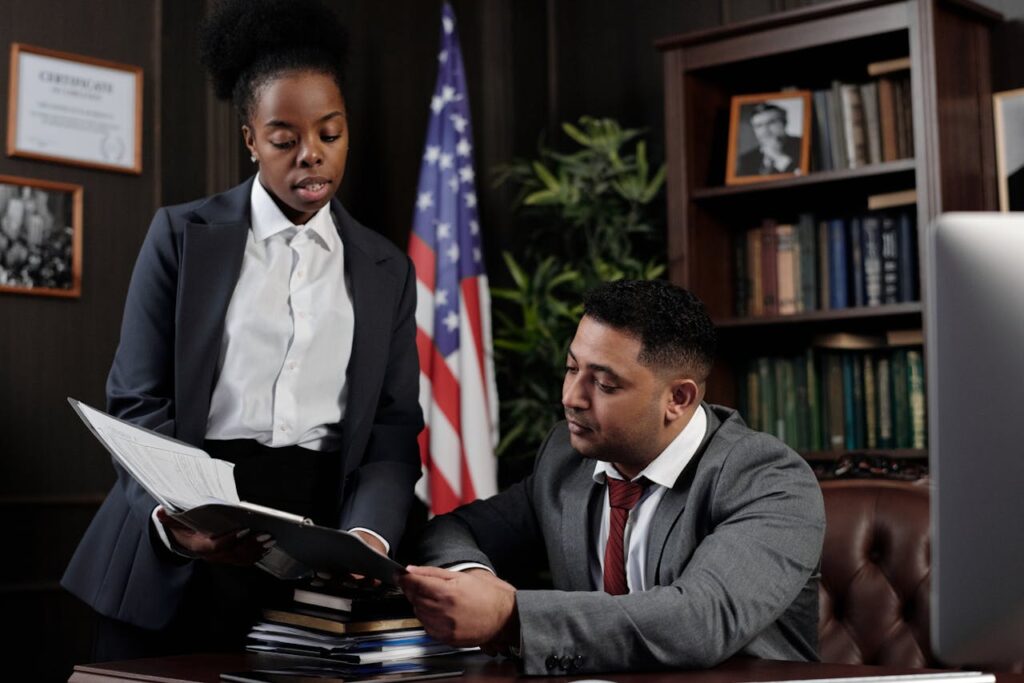As attorneys specializing in citizenship and naturalization, we understand the complexities and challenges that individuals face when seeking to become citizens of a new country. Immigration law is intricate, and the path to citizenship can be overwhelming for those who are unfamiliar with the process. With this in mind, our aim is to provide guidance and support, ensuring that our clients have the necessary resources and assistance to successfully navigate their journey toward becoming citizens.
In this article, we will be discussing the various aspects of working with an attorney for citizenship. We will explore the services provided, the critical role an attorney plays in the naturalization process, and the benefits of having expert legal representation on your side. Our intention is to help individuals understand the significance of seeking professional help in obtaining citizenship, and to emphasize the importance of finding a qualified and experienced attorney who specializes in immigration law.
We believe that everyone deserves the best chance at attaining citizenship in the country they wish to call home. By providing valuable insights into the role of an attorney for citizenship, we hope to empower individuals to make informed decisions as they embark on their journey toward naturalization. Learn more about attorney for citizenship
Finding the Right Citizenship Attorney
Attorney Credentials and Experience
When searching for a citizenship attorney to represent you, it is crucial to verify their credentials and experience. Ensure they are licensed to practice law in your jurisdiction and are a member of a recognized legal association, such as the American Immigration Lawyers Association (AILA) or the American Bar Association. This can be checked online or by contacting the organization directly. Additionally, inquire about their experience in handling citizenship cases similar to yours.
Consider the following when evaluating an attorney’s experience:
- Years of practice in immigration law
- Number of citizenship cases handled
- Success rates and client testimonials
- Relevant certifications and specializations
Consultation and Legal Representation
Before choosing a citizenship attorney, schedule an initial consultation. This provides an opportunity for you to present your case and gauge the attorney’s professionalism, competence, and approach to handling your situation. The consultation can be conducted in person, over the phone, or through a video call.
During the consultation, evaluate the following aspects:
- Accessibility: Is the attorney easily reachable via phone or email?
- Communication: Are they responsive and clear in answering your questions?
- Professionalism: How do they present themselves and discuss your case?
- Strategy: Do they outline a strategic plan for your case?
- Feasibility: Are they honest about the possible outcomes of your case?
Upon selecting a citizenship attorney, establish a clear agreement regarding their legal representation, including their scope of work, duties, and fee structure. This ensures a transparent and mutually beneficial relationship.
In conclusion, finding the right citizenship attorney requires diligence and patience. Always prioritize credentials, experience, and a strong professional rapport during this process. Your citizenship journey will be smoother and more successful with an experienced and dedicated attorney by your side.
The Citizenship and Naturalization Process
Eligibility and Application Procedures
To begin the citizenship and naturalization process, one must first determine their eligibility. Generally, eligibility is based on factors such as having a green card for a certain period, continuous residence in the United States, and demonstrating good moral character. Once eligibility is established, an individual may proceed with the application process.
The key document when applying for citizenship is the Form N-400, Application for Naturalization, which is submitted to the United States Citizenship and Immigration Services (USCIS). As part of the application process, applicants should gather and submit necessary supplementary documents, such as proof of residence and green card, amongst others. Some of the important steps in the application process are:
- Complete Form N-400
- Collect supporting documents
- Submit the application and fee to USCIS
- Attend the biometrics appointment (if required)
- Attend the interview
- Receive the decision on the application
Challenges and Appeals
Though many applicants successfully navigate the naturalization process, some may face challenges requiring an attorney’s assistance. Common issues include denied applications due to lack of supporting documents, or failure in demonstrating good moral character. In such cases, applicants might consider appealing the decision.
The first step toward a potential appeal is to request a review of the initial decision. Applicants can file a Form N-336, Request for a Hearing on a Decision in Naturalization Proceedings, within 30 days of receiving the decision. This form initiates the appeal process, leading to an administrative review by a USCIS officer. If a satisfactory resolution is not reached, further legal recourse is available.
Post-Application Steps
For applicants who successfully navigate the application process and have their citizenship granted, a few final steps remain. Firstly, they must attend a naturalization ceremony where they will take the Oath of Allegiance in front of a USCIS official. This Oath of Allegiance to the United States is a crucial step in the naturalization process, and failure to take the oath will result in a delay or denial of one’s citizenship.
Once the Oath of Allegiance is taken, individuals will receive a Certificate of Naturalization, serving as official proof of U.S. citizenship. It is important to remember that becoming a citizen carries several rights and responsibilities, such as voting in federal elections, serving on a jury, and understanding the fundamentals of U.S. history and government. As newly naturalized citizens, it is essential to stay informed and engaged with civic duties, making good use of the rights and responsibilities conferred upon them through this process.

